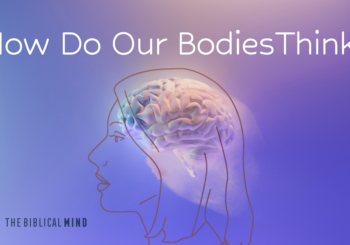Recovering the Political Teachings of the Hebrew Bible
The Hebrew Bible is a fount of political ideas, many of which were centuries and millennia ahead of their time. But the notion that man’s relation to his surrounding political and social structures should—indeed, must—stem from his metaphysical relation to God is one that is not immediately apparent to a modern reader―even a religious one.
Why do we think of religion in the Bible, but not politics in the Bible? How did we get here?
This is because the development of political thought in early modern Europe was largely a conscious effort to leave behind the theologically laden political systems dominated by the Church in the Middle Ages in the period following the general disintegration engendered by the barbarian invasions.
Enjoying this article? Read more from The Biblical Mind.
The Church saw the purpose of the republic as a vehicle toward salvation of the individual and imposed theocracy in its rule over empires, monarchies and city-states. It was hostility toward theocratic rule that ultimately allowed the first secular culture in Europe to arise in Italy, in the writings of figures such as Dante, who were the first to challenge the political power of the papacy.
Machiavelli
In The Prince, Machiavelli sought to articulate a new political order as a response to what he saw around him: the tenuous political structure of the Florentine city-state, weakened by domination at the hands of the Church. He was the first European political thinker who rejected the Church’s position whereby the religious good was superior to the political good. Instead, he conceived of the purpose of the political order not in terms of the spiritual salvation of man, but rather in terms of the protection of the physical welfare of the masses under its jurisdiction.
Hobbes
The decoupling of the engine of religion from the train of politics was furthered in the writings of Hobbes. Hobbes witnessed first-hand the English Civil War, which was as religiously driven as it was politically. Protestantism had taught the dogma that each individual is “holy”, and can lay claim to “having grace” and has to obey his own “inspiration.” Yet, through his own experience of the English Civil War, Hobbes saw that these religious notions led to political arrogance, and disrespect for one’s neighbor. He reasoned that the quarrels of men concerning the definition of the noblest religious virtues, had in the end brought about the war of all against all. It was with reference to this war of all against all that Hobbes penned his famous statement in the 13th chapter of the Leviathan that human life is “solitary, poore, nasty, brutish and short.”
For both Machiavelli and Hobbes, the political order must be rid of theological significance, or, indeed, of any higher goal other than protecting the welfare of the individuals within its jurisdiction. These men articulated their ideas from a view of human nature as deprived of any positive qualities that might give the lives of men, and the political order in which they function, a larger metaphysical purpose.
Moving Forward . . .
We are the cultural inheritors of this notion that celebrates the disconnect between religious ideas and political ones. For men and women of faith, imbued with a high view of Scripture, the time is ripe to take stock of how unwittingly we find ourselves passengers on a cultural ship that has drifted so far from its classical and traditional moorings that we no longer understand what we have lost.
This is the time to understand politics in the Bible. That means re-engaging with the passages of the Hebrew Bible that provide, through law and narrative, not just a picture of personal piety, but also a blueprint and a wealth of resources for conceiving of our civic and national life.
Did you enjoy this article? Check out The Biblical Mind podcast.
Credits for the music TBM podcast: hebraicthought.org/credits.





